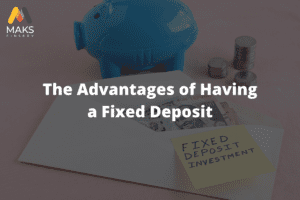- Home
- Home Loan
Instant online approval. Apply online and get approved in 3 working days
Loan amount from Rs 50,000 - Rs 30 Lakhs
Flexible repayment tenures between 1 to 5 years
Apply for Home Loan
Features of Home Loan
Home loans in private approved projects
Home Loans for purchase of a flat, row house, bungalow from private developers in approved projects.
Home Loans Development Authorities properties
Home Loans for purchase of properties from Development Authorities such as DDA, MHADA etc.
Home Loans for pre-existing property
Loans for purchase of existing property in Co-operative Housing Society, Development Authorities settlements, or privately built-up homes.
Expert Guidance
Legal and technical counselling to help you make the right home buying decision.
Integrated Network
Integrated branch network for availing and servicing the Home Loans anywhere in India.
Special arrangement with AGIF
For Home Loans for those employed in the Indian Army.
Calculate EMI with MAKS Finserv Home Loan EMI Calculator
0
0
0
Home Loan eligibility criteria
Nationality
Indian
Age
18 years to 70 years
Employment
Working at an MNC, public or private company
CIBIL score
750 or higher
Income
At least 5-6 lakhs per annum.
Documents required
- Identity proof: (Driving License/PAN/Voter ID/Valid Passport)
- Address proof: (Copy of Electricity Bill/Water Bill/Telephone Bill/ Copy of valid Passport/Aadhaar Card/Driving License)
- Indian Embassy/Consulate
- Overseas Notary Public
- FOs/Representative Offices
- Officials of Branch/Sourcing Units based in India
Other Documents:
- Attested copy of the applicant’s/co-applicants’/guarantor’s valid passport and visa
- Proof of residence indicating the applicant’s current overseas address
- Employer Identity Card
- If the applicant is employed in the Merchant Navy, the applicant is required to submit a copy of Continuous Discharge Certificate (CDC)
- PIO Card issued by the Government of India in case the applicant/co-applicant is a Person of Indian Origin (PIO).
- The completed loan application form duly filled with three passport size photographs of the applicant and co-applicants.
- The attestation of the documents can be done by:
Income proof
| For Self Employed | For Salaried |
|---|---|
| Proof of income if the applicant/co-applicant is a self-employed professional/businessman. | Valid work permit |
| Business address proof | Employment contract (translated in English) attested by the employer/consulate/embassy/Indian foreign office if the contract is in another language. |
| Balance Sheet and Profit and Loss accounts audited by a certified CA for the last 2 years | Salary slips for last three months |
| Individual Tax Return for the last 2 years – Not applicable to NRIs/PIOs located in the Middle East countries. | Bank statements indicating salary credit for the last 6 months |
| Bank statement of the individual’s as well as the business/company’s overseas account for the last 6 months. | Copy of the Identity Card issued by the current employer along with the latest salary slip (original). |
| Copy of the individual Tax Return for the last assessment year. – Not applicable to employees in the Merchant Navy and NRIs/PIOs located in the Middle East countries. |
Property documents
- Agreement of Sale (any one):
- Registered Agreement of Sale
- Stamped Agreement of Sale
- Allotment Letter
- Occupancy Certificate in case the property is a ready-to-move-in property
- Copy (blueprint) of the Approved Plan and Registered Development agreement of the builder
- Conveyance Deed in case of a new property
- Bank account statements indicating all payments made to the seller or builder
Current home loan interest rate, fees and charges
| Types of fees | Charges applicable |
|---|---|
| Interest rate | Low interest rates starting from 6.70% p.a. |
| Processing fees | This is a one-time non-refundable fee that is to be paid to the home loan provider after the loan application has been approved. The processing charge varies depending on the loan scheme you are applying for. |
| Penal interest | Loan providers also charge a penalty on delayed repayments i.e., if you fail to make your Equated Monthly Instalments (EMIs) or Pre-EMIs on time. The defaulting charges vary from one bank to another. |
| Part—prepayment charges** | Prepayment penalty is the fee you will have to pay the lender if you plan on repaying your home loan before the completion of the loan tenure. |
| Cheque dishonor charges: | The fee is levied when the loan provider finds that a cheque issued by the borrower is found to be dishonored due to reasons such as insufficient funds in the borrower’s account. |
Types of personal loan interest rates
Personal loans come with two types of rates of interest: Fixed interest rate and floating interest rate.
1. Fixed interest rate
As the name suggests, the interest rate remains the same throughout the loan tenor. Thus. the loan E Ils will also remain constant.
2. Floating interest rate
A floating, adjustable, or variable interest rate is linked to an internal benchmark of a financial institution. Changes to this benchmark will affect the rates. Hence, floating rates vary throughout the loan tenor.
Both of these rates have advantages and disadvantages. Fixed rates keep ENls constant, which helps in budgeting. On the other hand, floating rates go up or come down along with the internal benchmark rate.
Methods for Interest Calculation on Personal Loan
1. Flat rate method
In this method, the applicable rate of interest is charged on the entire principal throughout the tenor.
2. Reducing balance method
In the diminishing balance or reducing balance method, the applicable rate of interest is chargeable on the outstanding principal after each EMI is paid off. Thus, the interest is calculated every month on the loan balance. Borrowers pay lower interest on the loan compared to the flat rate method.
Interest rate calculation formula
The interest rate for a personal loan through the flat rate method and the reducing balance method is calculated using the following formula:
1. Flat rate method
The rate of interest is chargeable on the entire loan principal. The formula for this method is — ENI = (principal + total interest payable) / loan tenor in months Wherein, total interest payable = P x r x n/100
Contact MAKS Finserv Customer Care
If you are a new customer who is looking for information about the
MAKS Finserv Home Loan
- Visit our branch by finding us on Google
- SMS HELP to +91 9717708810
Frequently Asked Questions
- Banks/financial institutions consider the following factors when determining your loan eligibility:
- Age
- Annual Income
- Occupational stability
- Resident type [Indian Citizen, Non-Resident Indian (NRI), Person of Indian Origin (PIO)]
- Number of co-applicants
- Co-applicants’ income
- Credit score
- Other ongoing loans, if any



